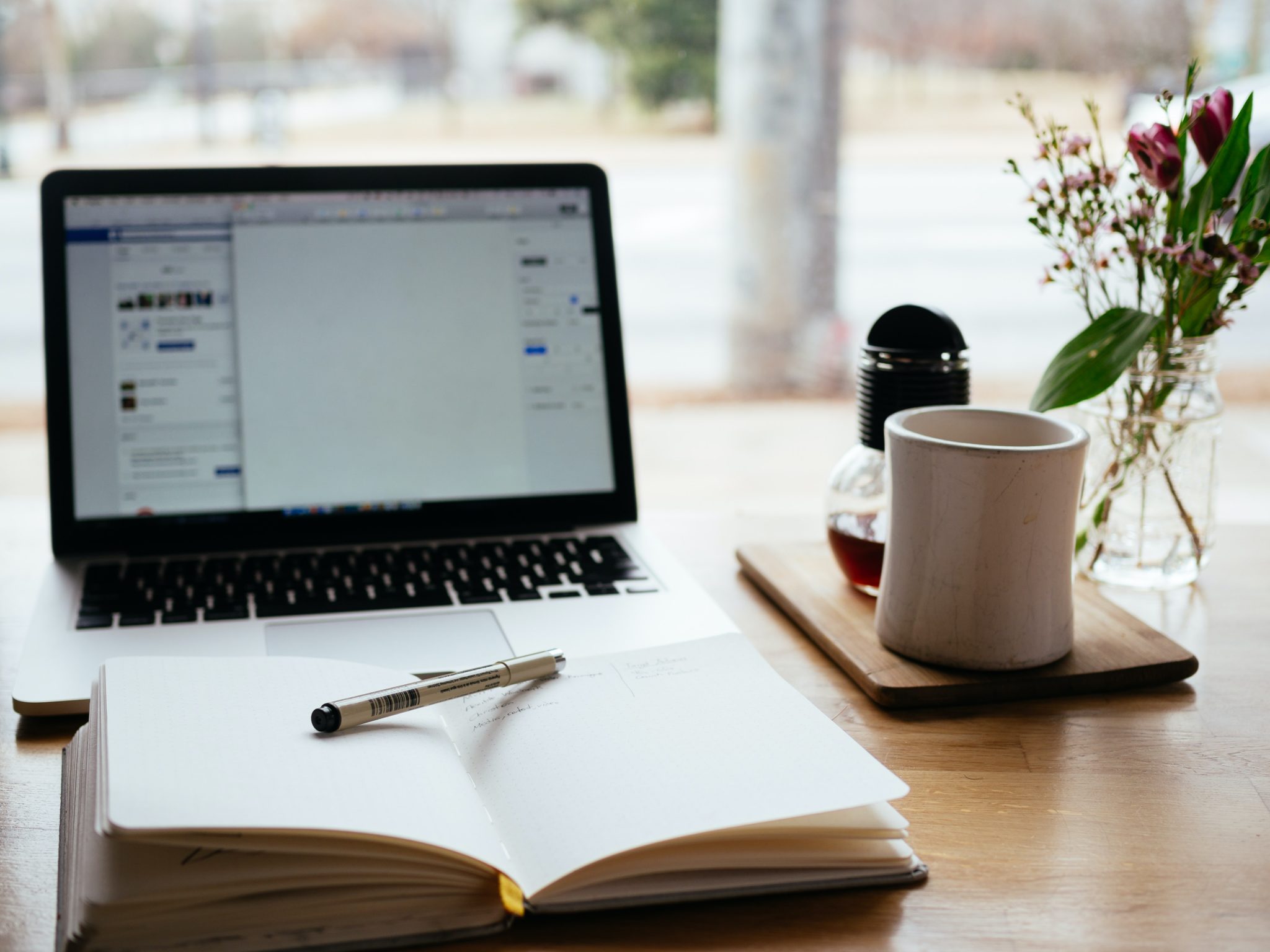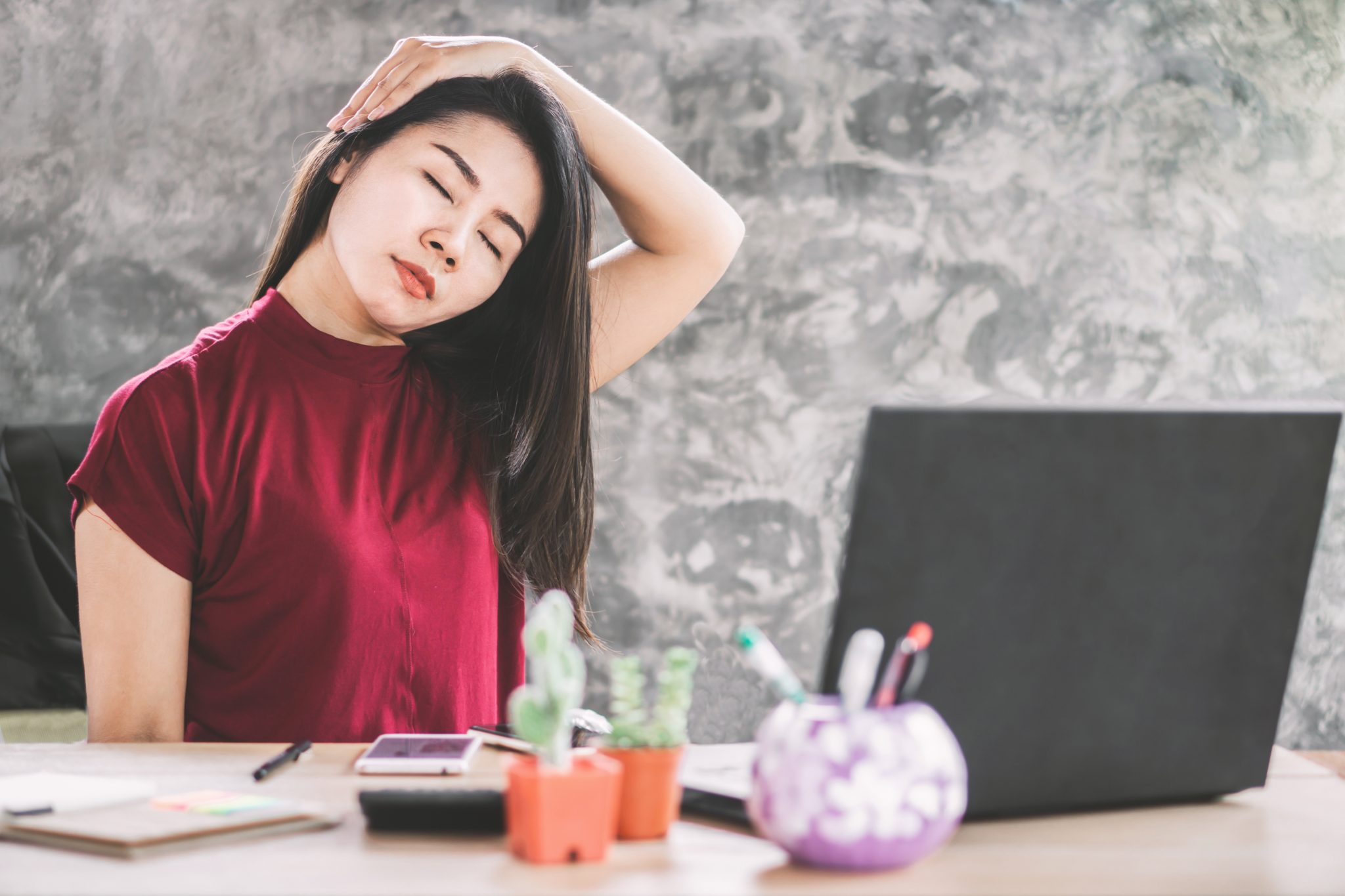Whether you’re back in the office or are still confined to the kitchen table, sitting down all day can cause back ache. Here’s how to stretch your back and neck to ease pain.
Lockdown may be easing, but many of us are still working from home – and will be for the foreseeable future. You don’t need to be told that slumping at your desk all day is causing back pain, but these stats may shock you: a third of people in Britain have had to take at least one sick day off work due to back or neck problems, according to 2020 research by the British Chiropractic Association.
Even if you’ve not had to take time away from your desk/kitchen table/sofa set up, you are probably one of the many who feels stiff and achy at the end of your working day. Spending all day in the same position can lead to a strain being placed on your joints and muscles, causing tightness.

The best desk posture
The NHS recommends that when you’re sitting at your desk your feet should be planted on the floor to support your back. You should also make sure your thighs are at right angles to your body, that your computer screen is at eye level so you’re not craning your neck, and – most importantly – that you take regular breaks to keep yourself moving.
But regardless of how well you sit, moving regularly is crucial for keeping your body mobile and preventing stiffness.
You may also like
How bad posture affects your mental health and how to remedy it
Stretching is especially important to help mitigate the long-term effects of back pain. Here are six that you should give a go after a day sat in your chair (or squeeze into your lunch hour).
Standing back extension stretch
- Stand with your hands on the small of your back with feet about shoulder width apart.
- Then slowly – and carefully – lean backwards, arching your lower back. Lean into it until you feel a stretch in your abdominal muscles, and hold for 10 or 15 seconds.
- Return to the starting position, and repeat a few times. This will stretch out and reduce pressure in your lower back, and improve your overall movement.
This stretch can also be done sitting down on the edge of a chair, with feet planted firmly on the ground.
You may also like
Back pain: how an osteopath helped my scoliosis (and why you should see one ASAP)
Seated spinal rotation
This is a great one to do from the comfort of your office chair.
- From a seated position, cross your arms in front of your chest and place them on your shoulders.
- Keeping your upper body extended upright, gently turn to the left and then back round to the right. You should feel your mid back relax as you rotate.
- Repeat 10 times.
Upper shoulder and neck stretch
For many people, pain or tightness in the shoulders and neck are part and parcel of back pain. To tackle both of these areas at once, try this stretch.
- Place your hands at the back of your head, interlacing your fingers.
- Gently pull your head forwards, trying to get your chin to touch your chest, until you feel a stretch down the back of your neck
- Hold for 10 or 15 seconds, release and repeat three times.
You can vary this stretch by using one hand to pull your head gently down to one side, so that your ear moves towards your shoulder. This will really stretch out the area where the shoulders, neck and upper back meet.

Knee to chest stretch
To relieve pressure on the lower back, try this lying stretch.
- Lie on your back, and bring one knee up to your chest.
- Hold onto your leg just below the knee with both hands, and gently pull it towards your torso.
- Hold for up to 20 seconds, and then repeat on the opposite side.
Prayer stretch
Known as child’s pose to yogis, this encourages the spine into flexion rather than extension.
- Start on your hands and knees and then push your glutes towards your heels.
- Lower your chest towards the ground with your arms extended out in front of you.
- Hold for up to 30 seconds.
Want to learn more stretches? Follow @StrongWomenUK on Instagram to watch as our certified trainers go over different stretches and their benefits every Friday on #StretchTheWeekOut. You can also learn more in the STRETCH highlight of our handle.
Image credit: Getty, Unsplash
Source: Read Full Article